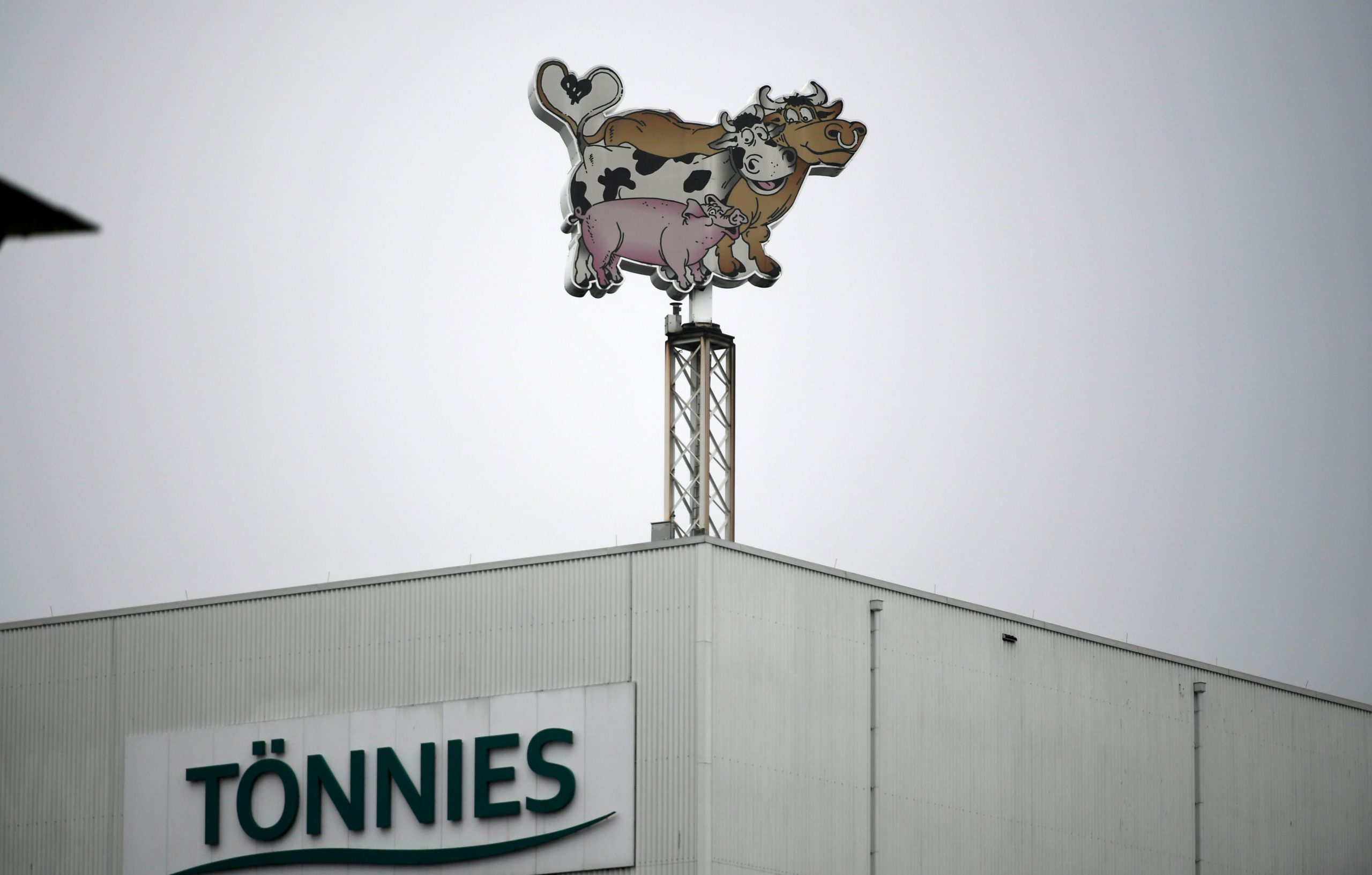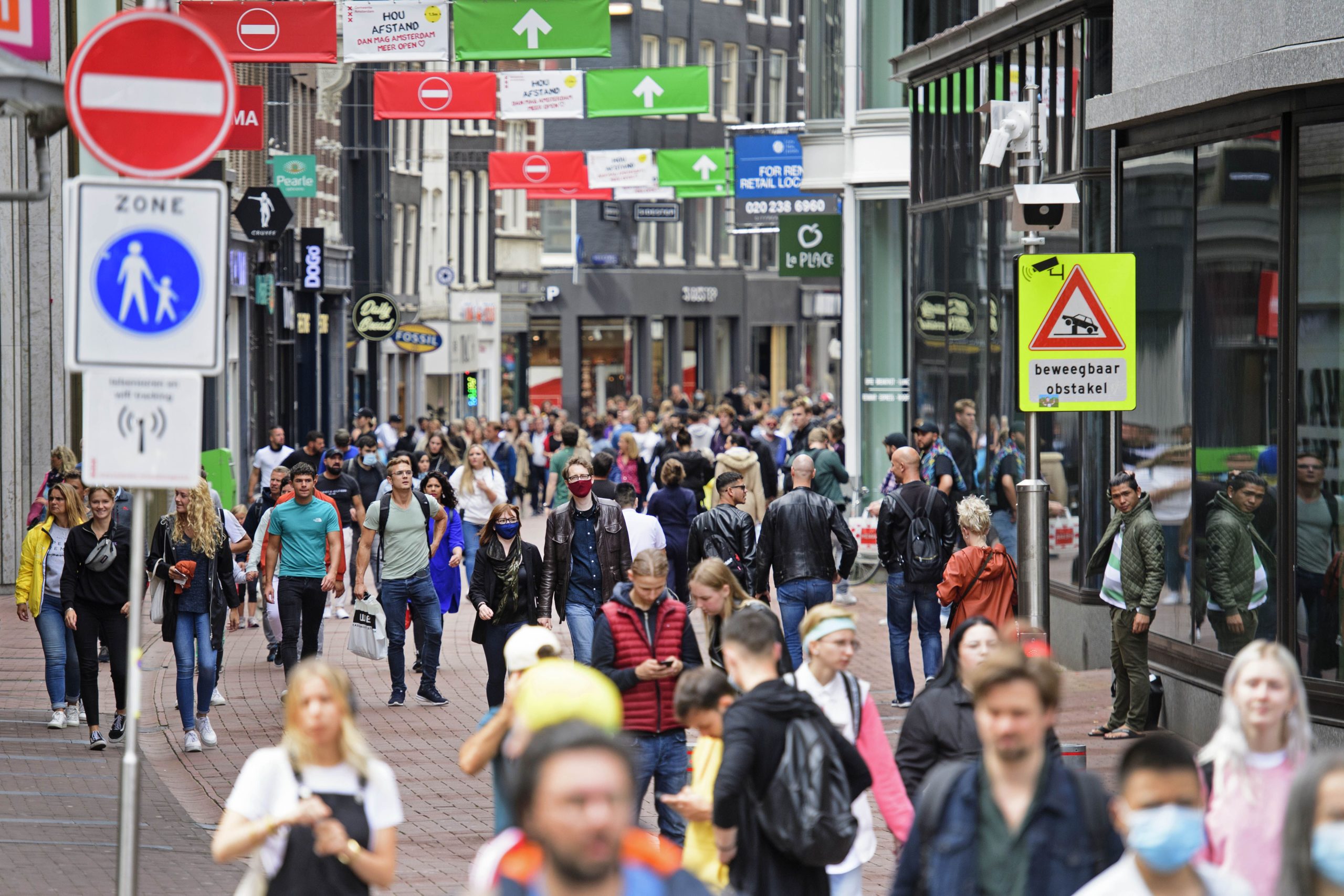Germanys slaughterhouses will have to offer contracts to all workers involved in slaughtering, cutting and processing under a new draft law approved by Cabinet ministers Wednesday.
Unions and migrant worker advocates welcomed the legislation, which follows a major coronavirus outbreak at the Tönnies meat plant near Gütersloh in west Germany last month that infected more than 1,500 workers and sparked a regional lockdown.
Pending approval by the Bundestag, the new rules should take effect in 2021.
“With todays decision, we have put a stop to the untenable practice of subcontracting in the meat industry,” said Agriculture Minister Julia Klöckner. In the future, there would be “clear responsibility instead of cascades of shadow companies.”
Labor Minister Hubertus Heil said an industry claim that the new law could force meat price rises of up to 20 percent a year was a “hollow threat.”
“Decent working conditions in and of themselves should not make meat more expensive,” he added.
Up to 30,000 of Germanys approximately 110,000 meatpackers are believed to be working as subcontractors. Most are employed by large meat plants.
However, a derogation in the new law will exempt companies that employ fewer than 50 people from the new protections, as a way to help the regional butchers trade. That is an increase from the original proposal, which limited the exemption to companies employing fewer than 30 workers, according to the Süddeutsche Zeitung.
Other aspects of the initial proposal were strengthened, with new measures obliging working hours to be recorded electronically — to ensure workers are adequately paid for this time — and increasing the frequency of workplace inspections.
German trade unions welcomed the new law as “historic,” but with some caveats. A statement by the NGG union also described the exemption for small companies as “incomprehensible.” Freddy Adjan, the NGGs deputy chair, called on employers to now sit down and negotiate a new collective agreement for the entire meat industry.
“We need nationwide collective agreements that not only prevent extreme exploitation but Read More – Source
Germanys slaughterhouses will have to offer contracts to all workers involved in slaughtering, cutting and processing under a new draft law approved by Cabinet ministers Wednesday.
Unions and migrant worker advocates welcomed the legislation, which follows a major coronavirus outbreak at the Tönnies meat plant near Gütersloh in west Germany last month that infected more than 1,500 workers and sparked a regional lockdown.
Pending approval by the Bundestag, the new rules should take effect in 2021.
“With todays decision, we have put a stop to the untenable practice of subcontracting in the meat industry,” said Agriculture Minister Julia Klöckner. In the future, there would be “clear responsibility instead of cascades of shadow companies.”
Labor Minister Hubertus Heil said an industry claim that the new law could force meat price rises of up to 20 percent a year was a “hollow threat.”
“Decent working conditions in and of themselves should not make meat more expensive,” he added.
Up to 30,000 of Germanys approximately 110,000 meatpackers are believed to be working as subcontractors. Most are employed by large meat plants.
However, a derogation in the new law will exempt companies that employ fewer than 50 people from the new protections, as a way to help the regional butchers trade. That is an increase from the original proposal, which limited the exemption to companies employing fewer than 30 workers, according to the Süddeutsche Zeitung.
Other aspects of the initial proposal were strengthened, with new measures obliging working hours to be recorded electronically — to ensure workers are adequately paid for this time — and increasing the frequency of workplace inspections.
German trade unions welcomed the new law as “historic,” but with some caveats. A statement by the NGG union also described the exemption for small companies as “incomprehensible.” Freddy Adjan, the NGGs deputy chair, called on employers to now sit down and negotiate a new collective agreement for the entire meat industry.
“We need nationwide collective agreements that not only prevent extreme exploitation but Read More – Source












